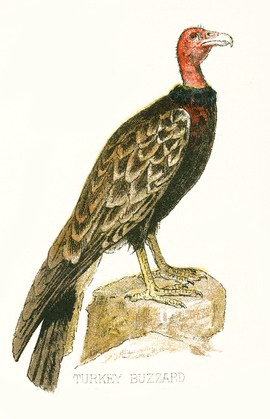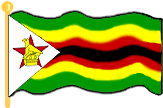Riti
"I am Ndau, almost 50 now, and my father would always recite it to me especially when we would spot the said mariti (plural form) as we walked in the fields in the rural area where I grew up..." -Misodzi Sithole

Riti
The Turkey Buzzard
Rhyme
Rhyme
(ChiNdau)
(English)
Riti, riti, mwana wa rashika.
Ndizo, ndizo kurgya ku wande.
Riti, riti, mwana wa oneka.
Ndizo, ndizo ti wande issu.
Turkey buzzard, turkey buzzard, your child is lost.
That is all right, the food will be more plentiful.
Turkey buzzard, turkey buzzard, your child is found.
That is all right, we will increase in number.
Notes
When I originally posted this rhyme, I asked if anyone knew if this rhyme was still recited. Here's a response we received from Misodzi Sithole:
This is in response to the question of whether this rhyme Riti is still being recited.
The answer to your question on the rhyme Riti is YES!! I am Ndau, almost 50 now, and my father would always recite it to me especially when we would spot the said mariti (plural form) as we walked in the fields in the rural area where I grew up. I asked him what it meant and his explanation was it was just an imitation of the sound the birds make.
I have recited it to my children who are young adults now and hopefully if they have children and I live long enough to help nurture my grandchildren, I will pass on the rich Ndau heritage; not just of the songs and rhymes but the also that very unique language. It is not easy raising them in the diaspora but it is a challenge i am excited to be taking on at some point. His version though was:
Riti, riti, mwana warashika
Ndizvo, ndizvo titsongerere
Riti, riti, mwana waoneka
Ndizvo, ndizvo tiwandirire
Turkey buzzard, turkey buzzard, your child is lost.
That is all right, that is all right, there will be less of us
Turkey buzzard, turkey buzzard, your child is found
That is all right, that is all right, we will increase in number
The poetic effect is carried through by:
the alternate rhyming in which the syllabic length for alternate lines is the same (a common device in traditional Shona children's songs and rhymes where a regular syllabic length is maintained)
the repetition of the word riti which itself is onomatopoeic when you consider the call of the bird
the use of the extended verbs (ku)-tsongerera and (ku)-wandirira
Of course growing up I did not think of why these rhymes stuck but being a Shona scholar too, I have developed a deeper understanding and appreciation of the form of the songs, language and rhymes especially of the Ndau as this is an area that has been very much under-researched with priority given to Zezuru/Karanga dialects...
...Thanks for reviving these memories. It has been fun and hopefully you will have more responses which might give you the regional or dialectical differences.
Thanks and Acknowledgements
This rhyme can be found in Negro Folk Rhymes, Wise and Otherwise, with a Study by Thomas W. Talley of Fisk University (New York, USA, 1922). Here's what it said about this rhyme, "Dr. C. C. Fuller: a missionary at Chikore Melsetter, Rhodesia, Africa, was good enough to secure for the compiler this rhyme, written in Chindau, from the Rev. John E. Hatch, also a missionary in South Africa."
Many thanks to Misodzi Sithole for sharing info about this rhyme!
Ndinobonga!

























